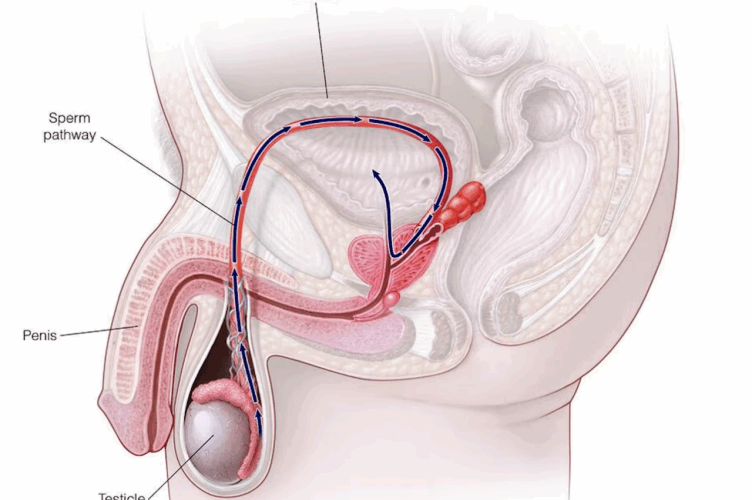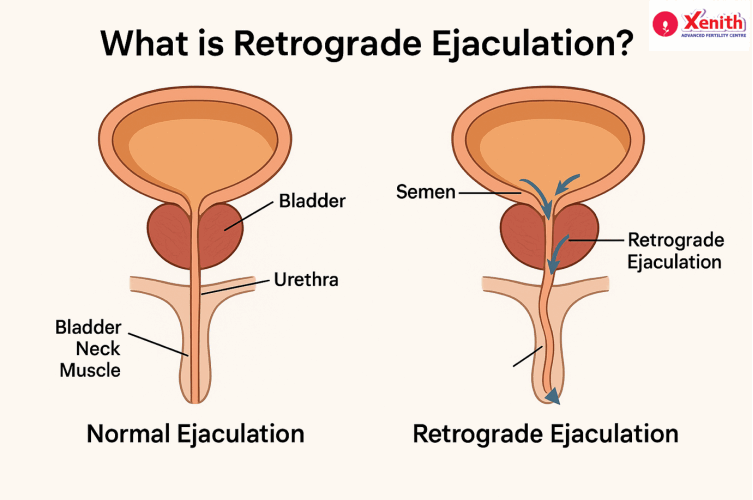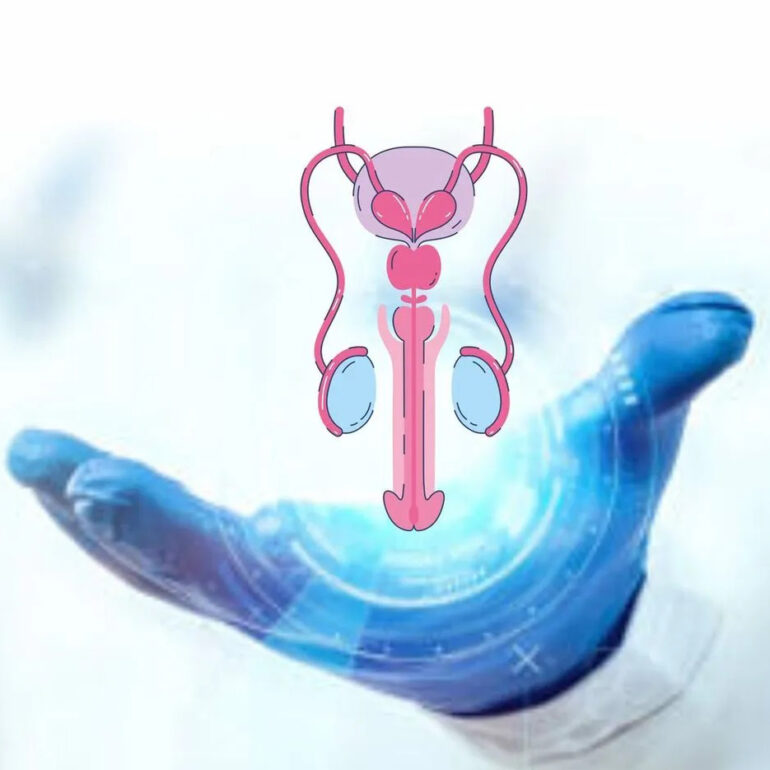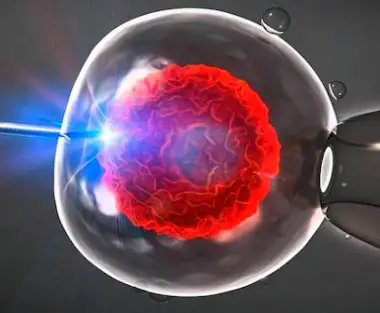Xenith Hope Circle
Join our new WhatsApp community
Intracytoplasmic Sperm Injection (ICSI) Treatment in India
ICSI (Intracytoplasmic Sperm Injection) is a highly specialized form of fertility treatment. At Xenith, we offer advanced ICSI treatment for couples facing challenges with infertility, especially when traditional IVF may not be sufficient. Whether you’re searching for “ICSI full form” or exploring “ICSI in India,” this treatment could be a game-changer, especially in severe male infertility cases.
What is ICSI?
ICSI, short for Intracytoplasmic Sperm Injection, involves injecting a single sperm directly into the cytoplasm of an egg. This procedure is particularly beneficial for couples dealing with male factor infertility, poor sperm motility, or low sperm count. It also serves as an essential option for those with failed fertilization attempts through conventional IVF.
ExcellentBased on 306 reviews Trustindex verifies that the original source of the review is Google.
Trustindex verifies that the original source of the review is Google. Baisakhi Biswas05/06/2025Amazing experience with Xenith wakad centre.All the doctors and nurses, staffs are very good, their behaviour is so polite. Mamta ma'am and her team bring the best news of my life.Thank you all 😊Trustindex verifies that the original source of the review is Google.
Baisakhi Biswas05/06/2025Amazing experience with Xenith wakad centre.All the doctors and nurses, staffs are very good, their behaviour is so polite. Mamta ma'am and her team bring the best news of my life.Thank you all 😊Trustindex verifies that the original source of the review is Google. Khetan Ganvir03/06/2025We are incredibly grateful to Xenith Advance Fertility Center, Wakad for making our dream come true. After a long journey, my wife conceived successfully through their expert care and guidance, and we are now expecting twins! Dr. Mamta Dighe and Dr. Pooja Chalukya were highly knowledgeable, compassionate, and supportive throughout the process. The staff made us feel comfortable and hopeful every step of the way. Their state-of-the-art facilities and personalized approach made a real difference. We couldn’t be happier with the outcome and highly recommend Xenith Advance Fertility Center to anyone struggling with infertility. Thank you for helping us start this beautiful new chapter in our lives!Trustindex verifies that the original source of the review is Google.
Khetan Ganvir03/06/2025We are incredibly grateful to Xenith Advance Fertility Center, Wakad for making our dream come true. After a long journey, my wife conceived successfully through their expert care and guidance, and we are now expecting twins! Dr. Mamta Dighe and Dr. Pooja Chalukya were highly knowledgeable, compassionate, and supportive throughout the process. The staff made us feel comfortable and hopeful every step of the way. Their state-of-the-art facilities and personalized approach made a real difference. We couldn’t be happier with the outcome and highly recommend Xenith Advance Fertility Center to anyone struggling with infertility. Thank you for helping us start this beautiful new chapter in our lives!Trustindex verifies that the original source of the review is Google. Nikita Badgujar30/05/2025Very Good experience, Entire team is very co-operative.Environment is also good.Trustindex verifies that the original source of the review is Google.
Nikita Badgujar30/05/2025Very Good experience, Entire team is very co-operative.Environment is also good.Trustindex verifies that the original source of the review is Google. Shraddha Borse30/05/2025I had a truly positive experience at Xenith. From the moment I walked in, I felt comfortable and well taken care of. The Doctors & staff was friendly, efficient, and always willing to helpTrustindex verifies that the original source of the review is Google.
Shraddha Borse30/05/2025I had a truly positive experience at Xenith. From the moment I walked in, I felt comfortable and well taken care of. The Doctors & staff was friendly, efficient, and always willing to helpTrustindex verifies that the original source of the review is Google. Neha Pohankar27/05/2025We are deeply grateful to the entire team at Xenith Center Wakad for their incredible support and care throughout our journey. From the very first visit, we felt welcomed and understood. A heartfelt thank you to the doctor for their expert guidance, to the embryologist for their dedication behind the scenes, and to the receptionists and support staff for always being kind, patient, and encouraging. Your collective compassion and professionalism made all the difference, and we will always hold a special place in our hearts for this amazing team.Trustindex verifies that the original source of the review is Google.
Neha Pohankar27/05/2025We are deeply grateful to the entire team at Xenith Center Wakad for their incredible support and care throughout our journey. From the very first visit, we felt welcomed and understood. A heartfelt thank you to the doctor for their expert guidance, to the embryologist for their dedication behind the scenes, and to the receptionists and support staff for always being kind, patient, and encouraging. Your collective compassion and professionalism made all the difference, and we will always hold a special place in our hearts for this amazing team.Trustindex verifies that the original source of the review is Google. Yugandhara Chaudhari17/05/2025We are deeply grateful to the entire team at Xenith IVF Centre for helping us achieve our dream in the very first attempt. After going through multiple IVF failures, we began our treatment here last year — and this year, we are overjoyed to be blessed with a baby. Our heartfelt thanks to Dr. Mamata Dighe, Dr. Pooja Chalukya, and Dr. Poonam for their exceptional care, expert guidance, and personal attention throughout our journey. Their confidence, patience, and transparent communication helped calm our anxieties and brought us immense comfort. The nursing staff has been consistently kind, attentive, and compassionate at every step — always present, always supportive. We’re also thankful to the reception team, who were approachable and available even during emergencies and after hours. Our experience at Xenith has been nothing short of incredible. Thank you all for being such a vital part of this life-changing journey.Trustindex verifies that the original source of the review is Google.
Yugandhara Chaudhari17/05/2025We are deeply grateful to the entire team at Xenith IVF Centre for helping us achieve our dream in the very first attempt. After going through multiple IVF failures, we began our treatment here last year — and this year, we are overjoyed to be blessed with a baby. Our heartfelt thanks to Dr. Mamata Dighe, Dr. Pooja Chalukya, and Dr. Poonam for their exceptional care, expert guidance, and personal attention throughout our journey. Their confidence, patience, and transparent communication helped calm our anxieties and brought us immense comfort. The nursing staff has been consistently kind, attentive, and compassionate at every step — always present, always supportive. We’re also thankful to the reception team, who were approachable and available even during emergencies and after hours. Our experience at Xenith has been nothing short of incredible. Thank you all for being such a vital part of this life-changing journey.Trustindex verifies that the original source of the review is Google. nikhil16/05/2025The entire team at Xenith was very helpful and paid attention to details and patient’s need and concerns. Thanks to their constant support. Would highly recommend the facility.Trustindex verifies that the original source of the review is Google.
nikhil16/05/2025The entire team at Xenith was very helpful and paid attention to details and patient’s need and concerns. Thanks to their constant support. Would highly recommend the facility.Trustindex verifies that the original source of the review is Google. Shweta Dervankar15/05/2025Excellent journey......we got a positive result.....we tried a lot outside but was disappointed.....in xenith Dr. Mamta ma'am give us a hope and bring happiness in our life.....strongly recommending Xenith..... Thank you so much team...... Must visit for your infertility problem.Trustindex verifies that the original source of the review is Google.
Shweta Dervankar15/05/2025Excellent journey......we got a positive result.....we tried a lot outside but was disappointed.....in xenith Dr. Mamta ma'am give us a hope and bring happiness in our life.....strongly recommending Xenith..... Thank you so much team...... Must visit for your infertility problem.Trustindex verifies that the original source of the review is Google. Mayuri Darwade14/05/2025I would like to express my sincere gratitude to the entire team at Xenith IVF Centre for making our dream come true in the very first attempt. A special thanks to Dr. Mamata Dighe, Dr. Pooja Chalukya, and Dr. Poonam for their expert care, guidance, and personal attention throughout the journey. Their confidence, patience, and clear communication helped ease all our worries and gave us great comfort. The nursing staff has been extremely kind, responsive, and caring at every stage, always available, and always supportive. I’d also like to thank the reception staff, who have been readily available even during emergencies and after hours. We had a very positive and reassuring experience at Xenith. Thank you all for being such a wonderful part of this life-changing journey.Trustindex verifies that the original source of the review is Google.
Mayuri Darwade14/05/2025I would like to express my sincere gratitude to the entire team at Xenith IVF Centre for making our dream come true in the very first attempt. A special thanks to Dr. Mamata Dighe, Dr. Pooja Chalukya, and Dr. Poonam for their expert care, guidance, and personal attention throughout the journey. Their confidence, patience, and clear communication helped ease all our worries and gave us great comfort. The nursing staff has been extremely kind, responsive, and caring at every stage, always available, and always supportive. I’d also like to thank the reception staff, who have been readily available even during emergencies and after hours. We had a very positive and reassuring experience at Xenith. Thank you all for being such a wonderful part of this life-changing journey.Trustindex verifies that the original source of the review is Google. J P30/04/2025We had a truly wonderful experience with Mamta Ma’am and her amazing team. From start to finish, everyone was kind, supportive, and genuinely caring. A heartfelt thank you to Pooja Ma’am, who was always just a call away whenever we had questions or needed guidance. Thanks to their expertise and constant support, we achieved a positive outcome. Highly recommended to anyone going through this journey—you’ll be in the best hands!
J P30/04/2025We had a truly wonderful experience with Mamta Ma’am and her amazing team. From start to finish, everyone was kind, supportive, and genuinely caring. A heartfelt thank you to Pooja Ma’am, who was always just a call away whenever we had questions or needed guidance. Thanks to their expertise and constant support, we achieved a positive outcome. Highly recommended to anyone going through this journey—you’ll be in the best hands!
Procedure for ICSI: Step-by-Step Guide
Wondering about the procedure of ICSI step by step? Here’s how it works:
- Egg Retrieval: The process begins with the stimulation of the ovaries to produce multiple eggs, which are then retrieved through a minor surgical procedure.
- Sperm Preparation: The sperm is carefully selected and prepared for injection. This is crucial in cases where sperm quality is compromised.
- Sperm Injection: Using a fine needle, a single sperm is injected directly into the center of the egg (cytoplasm), hence the name “Intracytoplasmic.”
- Fertilization and Embryo Development: Post-injection, the eggs are monitored for fertilization. Typically, normal fertilization rates range between 75-85% with ICSI.
- Embryo Transfer: After 3-5 days of monitoring, the healthiest embryos are selected for transfer back into the uterus.
This ICSI procedure is designed to maximize the chances of successful fertilization and subsequent pregnancy.
Difference Between IVF and ICSI
While both IVF and ICSI follow similar patient procedures like egg retrieval and embryo transfer, the key distinction lies in the fertilization technique. In IVF, sperm are placed around the egg, allowing natural fertilization to occur. In ICSI, the sperm is directly injected into the egg. This approach is particularly effective when sperm quality is an issue.
ICSI Success Rates and Considerations
At Xenith, we are proud of our high ICSI success rates. Our experienced specialists will guide you in making an informed decision about your fertility treatment.
ICSI in IVF: Is It Right for You?
If you are dealing with male infertility, previous failed fertilization attempts, or specific conditions like low ovarian reserve or advanced maternal age, ICSI in IVF might be recommended. At Xenith, our specialists provide personalized care to ensure the best possible outcomes.
Conclusion
For couples struggling with infertility, ICSI offers a promising solution. Whether you’re searching for “ICSI treatment in India” or need detailed information on the “ICSI procedure,” Xenith is here to support you every step of the way. Contact us today to discuss your options for ICSI and take the first step towards growing your family.
Why Choose Xenith?
- Patient-centered care
- Specialty in Recurrent IVF Failures
- Focus on interventions
- High IVF success rates
- High Clinical Standard
- All treatments under one roof
Book Appointment Today!
Recent Posts

Can Diabetes Cause Retrograde Ejaculation? Here’s What You Need to Know

How to Reverse Retrograde Ejaculation Naturally and Medically

Retrograde Ejaculation and Male Infertility: A Complete Guide




